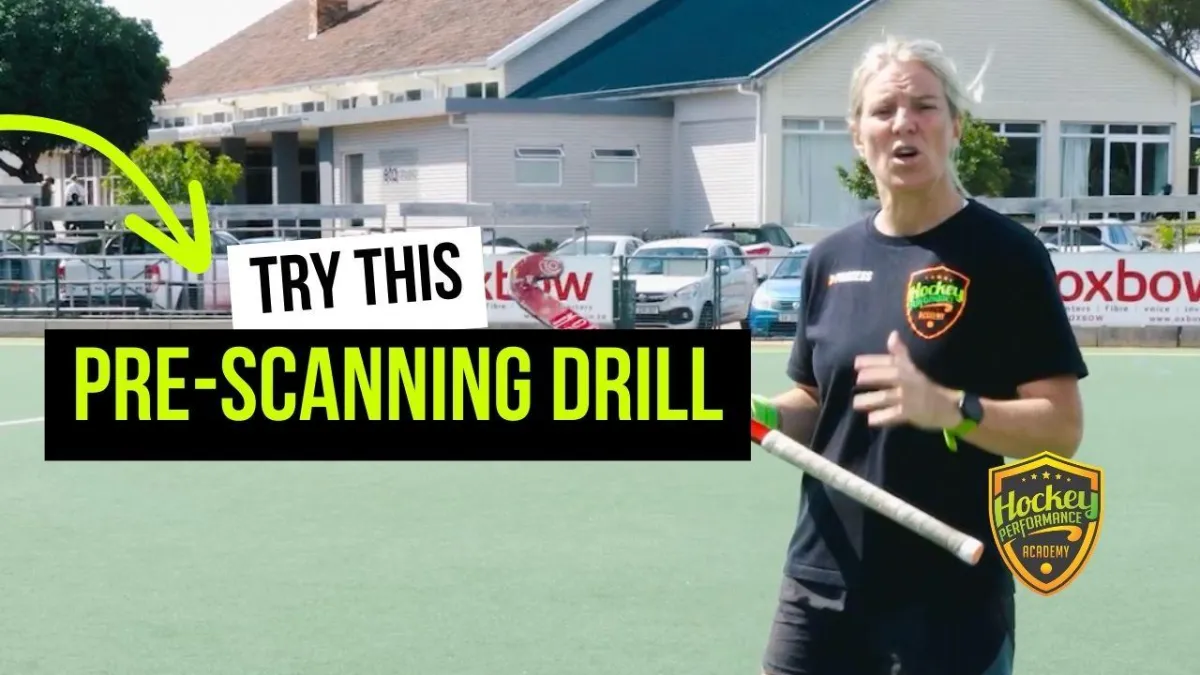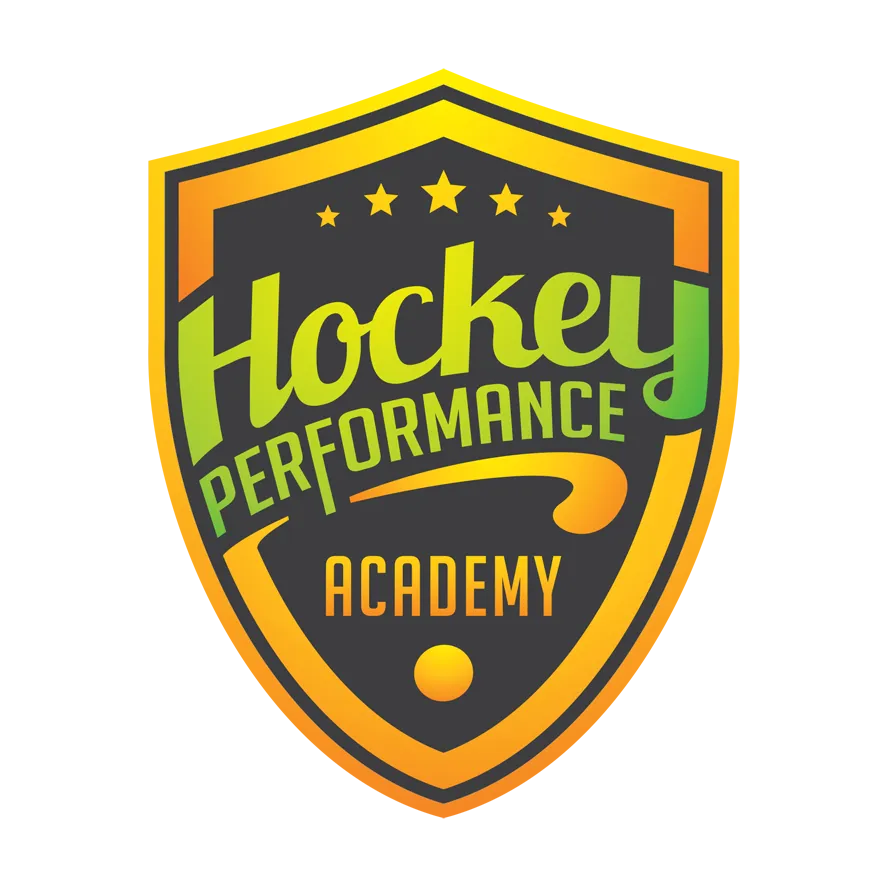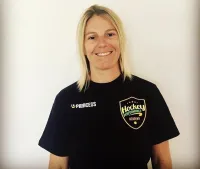
Not Sure What To Do When You Get The Ball? Try This!
Ever been caught out in a hockey game, heart racing and unsure what to do when you get the ball?
Most hockey players tend to focus on what they do when they get the ball, but 97% of the game is played without the ball.
Being a great field hockey player isn't about what you do with the ball - it's about what you do before the ball touches your stick that sets you up for success.
I'm talking about the pre-scan, which I believe is the most important habit to develop as a player.
You've probably heard it before, but are you doing it?
And if you are, are you doing it effectively?
Pre-scanning helps you to absorb the game's dynamics in real-time – identifying open teammates, gauging the positioning of defenders, and predicting the flow of play.
"If you fail to prepare, prepare to fail"
In the video below I take you through a drill to practice developing the pre-scan habit, which will also determine how to receive the ball depending on the situation.
Try This Pre-Scan Drill To Prevent Hesitation In Field Hockey
Want more inspiration?
If you're a hockey player aged 35-75+ years and you're looking for ways to stay competitive or to take your game to the next level, even as you get older, then check out the 4 Ways To Modernise Your Hockey FREE TRAINING here
'where age is no limit'
Or if you'd like personalised coaching and support you can apply to work with us here
For more hockey tips and training DOWNLOAD OUR FREE mobile app using the buttons below



Not Sure What To Do When You Get The Ball? Try This!
Ever been caught out in a hockey game, heart racing and unsure what to do when you get the ball?
Most hockey players tend to focus on what they do when they get the ball, but 97% of the game is played without the ball.
Being a great field hockey player isn't about what you do with the ball - it's about what you do before the ball touches your stick that sets you up for success.
I'm talking about the pre-scan, which I believe is the most important habit to develop as a player.
You've probably heard it before, but are you doing it?
And if you are, are you doing it effectively?
Pre-scanning helps you to absorb the game's dynamics in real-time – identifying open teammates, gauging the positioning of defenders, and predicting the flow of play.
"If you fail to prepare, prepare to fail"
In the video below I take you through a drill to practice developing the pre-scan habit, which will also determine how to receive the ball depending on the situation.
Try This Pre-Scan Drill To Prevent Hesitation In Field Hockey
Want more inspiration?
If you're a hockey player aged 35-75+ years and you're looking for ways to stay competitive or to take your game to the next level, even as you get older, then check out the 4 Ways To Modernise Your Hockey FREE TRAINING here
'where age is no limit'
Or if you'd like personalised coaching and support you can apply to work with us here
For more hockey tips and training DOWNLOAD OUR FREE mobile app using the buttons below



